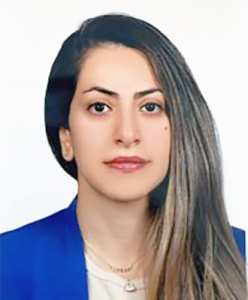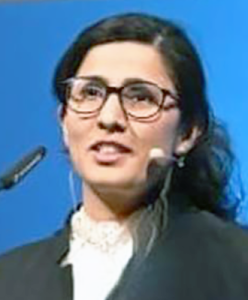CSR SDGCP
2025 IEEE CSR Workshop on Synthetic Data Generation for a Cyber-Physical World (SDGCP)
Chania, Crete, Greece (in-person event) • August 4–6, 2025
Synthetic datasets that reflect the statistical properties of authentic data allow to share research insights and findings without compromising privacy or proprietary interests. This approach not only promotes transparency and reproducibility in research but also encourages interdisciplinary collaboration and knowledge sharing. Artificial Intelligence (AI) is one of the main areas utilizing generated synthetic data. Privacy issues arise once the dataset contains sensitive features playing a role in training AI systems. Due to the fact that data collection is expensive and time-consuming, given some shortcomings such as low volume of data, non-compliance with regulations, and bias, we not only may achieve biased and low-performance models but also violate privacy principles. Synthetic data generation can facilitate analysis, the need for data augmentation, or prevent data breaches in highly sensitive domains, rather than weak anonymization approaches. Generative Adversarial Networks (GAN), Variational Autoencoders (VAE), and Agent-based modeling (ABM) are among the most common synthetic data generation algorithms.
However, it is critical to recognize the limitations of synthetic data generation, particularly in capturing the intricacies and interdependencies present in real-world systems. While synthetic datasets can mimic statistical distributions and patterns, they may struggle to replicate the nuanced relationships and contextual nuances inherent in complex phenomena. By leveraging advances in artificial intelligence, machine learning, and computational modeling, researchers can strive to bridge the gap between synthetic and authentic data, unlocking new opportunities for insight and innovation in fields as diverse as healthcare, finance, social sciences, and beyond.
The CSR SDGCP workshop will accept high-quality research papers presenting strong theoretical contributions, applied research and innovation results obtained from funded cyber-security and resilience projects, and industrial papers that promote contributions on technology development and contemporary implementations.
Topics of Interest
Prospective authors are encouraged to submit previously unpublished contributions from a broad range of topics, which include but are not limited to the following:
› Generating synthetic data compliance with regulations
› Privacy preserving in healthcare data
› Algorithms for debiasing dataset (in the preprocessing phase of ML modeling)
› Algorithms for debiasing the ML models’ results
› Uncovering and mitigating synthetic data algorithmic bias
› Assurance and certification of the dataset and ML models
› Synergy of ABM with ML focusing on the rule extraction
› Domain dependent/independent synthetic data generation challenges and opportunities
› FAIR (findability, accessibility, interoperability, and reuse) and ethical synthetic data generation
› Explainability and interpretability aspects in synthetic data generation
Important Dates
Paper submission deadline: April 14 May 5, 2025 (extended, firm)
Authors’ notification: May 5 May 26, 2025
Camera-ready submission: May 26 June 16, 2025
Registration deadline (authors): May 26 June 16, 2025
Workshop dates: August 4–6, 2025
Submission Guidelines
Submitted manuscripts should not exceed 6 pages (plus 2 extra pages, being subject to overlength page charges) and should be of sufficient detail to be evaluated by expert reviewers in the field. The workshop’s proceedings will be published by IEEE and will be included in IEEE Xplore subject to meeting IEEE Xplore’s scope and quality requirements.
The guidelines for authors, manuscript preparation guidelines, and policies of the IEEE CSR conference are applicable to SDGCP workshop. Please visit the authors’ instructions page for more details. When submitting your manuscript via the conference management system, please make sure that the workshop’s track 2T11 SDGCP is selected in the Topic Areas drop down list.
Workshop Committees
Workshop Chairs
|
|
|
Contact Us
Organizing Committee
Faiza Allah Bukhsh, University of Twente (NL)
Paolo Caravolo, University of Milan (IT)
Ernesto Damiani, Khalifa University (AE)
Samira Maghool, Universita degli Studi di Milano (IT)
Technical Program Committee
Juba Agoun, Universite Lumiere Lyon 2 (FR)
Marco Angelini, University of Rome “La Sapienza” (IT)
Valerio Bellandi, Universita degli Studi di Milano (IT)
Rob Bemthuis, University of Twente (NL)
Nicola Bena, Universita degli Studi di Milano (IT)
Filippo Berto, Universita degli Studi di Milano (IT)
Paolo Caravolo, Universita degli Studi di Milano (IT)
Elena Casiraghi, Universita degli Studi di Milano (IT)
Marco Cremonini, Universita degli Studi di Milano (IT)
Maya Daneva, University of Twente (NL)
Mohammadreza Fani Sani, Microsoft (US)
Sanja Lazarova-Molnar, Karlsruhe Institute of Technology (DE)
Rabia Maqsood, National University of Computer and Emerging Sciences (PK)
Afshin Montakhab, Shiraz University (AE)
Azzam Mourad, Lebanese American University (LB)
Ehsan Ullah Munir, Comsats University (PK)
Anastasija Nikiforova, University of Tartu (EE)
Alessandro Palma, University of Rome “La Sapienza” (IT)
Mirela Riveni, University of Groningen (NL)
Robert Wrembel, Poznan University of Technology (PL)
Publicity Chairs
Filippo Berto, Universita degli Studi di Milano (IT)
Samira Maghool, Universita degli Studi di Milano (IT)
Program Information
Will be made available in the coming months.
See also the accepted papers of the conference.
Will be made available in the coming months.
See also the detailed program of the conference.


